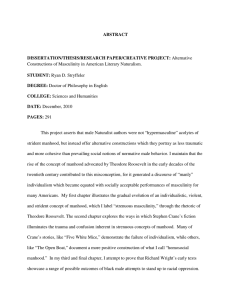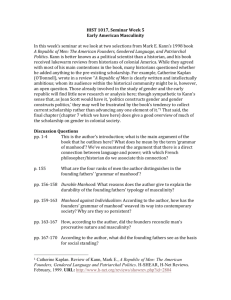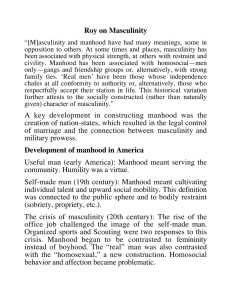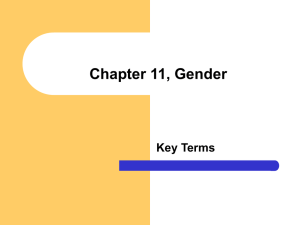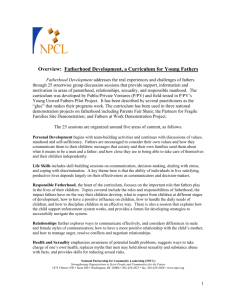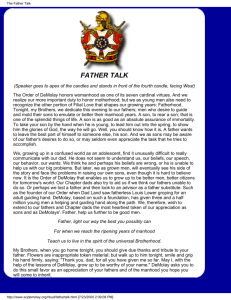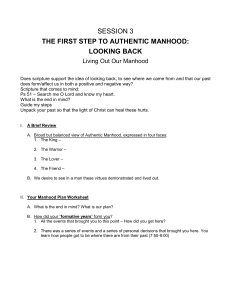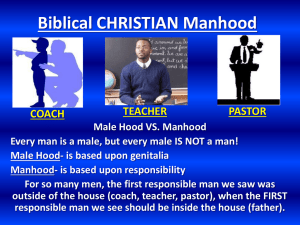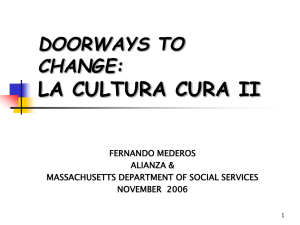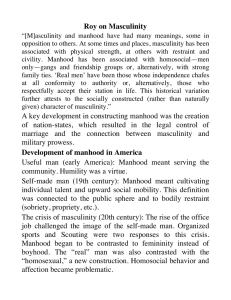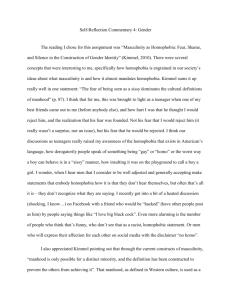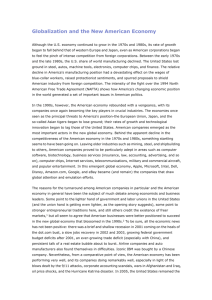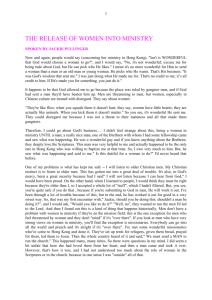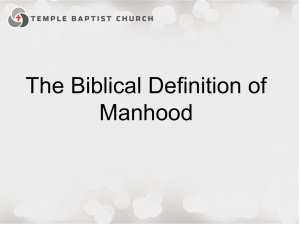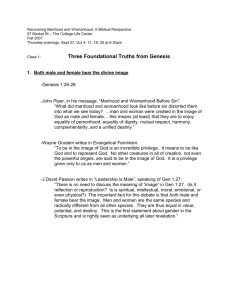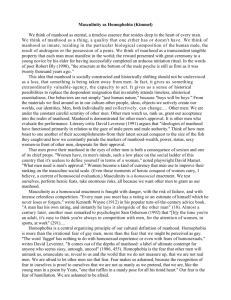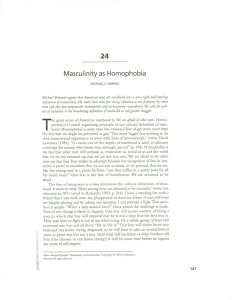1990s Men: Balancing
advertisement
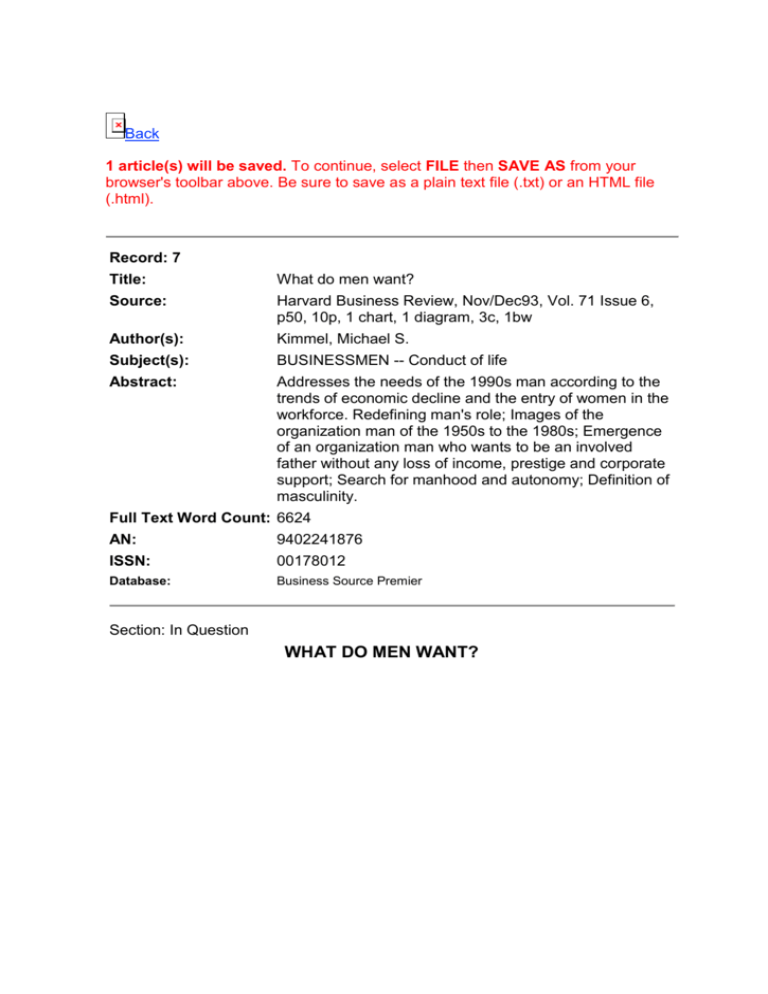
Back 1 article(s) will be saved. To continue, select FILE then SAVE AS from your browser's toolbar above. Be sure to save as a plain text file (.txt) or an HTML file (.html). Record: 7 Title: What do men want? Source: Harvard Business Review, Nov/Dec93, Vol. 71 Issue 6, p50, 10p, 1 chart, 1 diagram, 3c, 1bw Author(s): Kimmel, Michael S. Subject(s): BUSINESSMEN -- Conduct of life Abstract: Addresses the needs of the 1990s man according to the trends of economic decline and the entry of women in the workforce. Redefining man's role; Images of the organization man of the 1950s to the 1980s; Emergence of an organization man who wants to be an involved father without any loss of income, prestige and corporate support; Search for manhood and autonomy; Definition of masculinity. Full Text Word Count: 6624 AN: 9402241876 ISSN: 00178012 Database: Business Source Premier Section: In Question WHAT DO MEN WANT? Contents Who Was the Old Organization Man? Manhood Today and the Marketplace Housework: The Final Frontier? Male Demons and the Search for Meaning Resistance to Change: Corporate Inflexibility Make Way for the New Employee 1990s Men: Balancing The Organization Man "Make Way for the New Organization Man" The Male Ego Staying the Course: The Emotional and Social Lives of Men Who Do Well at Work Fatherhood in America: A History No Man's Land: Men's Changing Commitments to Family and Work Men, Work, and Family "Are 'Family. Supportive' Employer Policies Relevant to Men?" "Nurturing Fathers and Working Mothers: Changing Gender Roles in Sweden" Changing economies are forcing men to redefine themselves -- and it's time for companies to catch up. Freud's famous cry of resignation -"Women, what do they want?" -- has been a feminist touchstone for nearly a century. By contrast, the good doctor and countless other social commentators always assumed they knew what men wanted, especially in the realm of work. After all, a man's profession and his ability to bring home a paycheck have traditionally defined who that man was. With wives to manage the domestic scene, working men of the past had little reason to question a system designed by and for them. But unlike the man in the gray flannel suit of the 1950s or the fasttracker of the 1970s and 1980s, today's organization man faces a contracting economy in which corporations are restructuring, downsizing, and laying off thousands of employees. Though many wives of male chief executives still stay at home, spouses of most other men now work. These two trends -the recent economic downturn and women's entry into the workplace -- are forcing men to redefine themselves. In order to do so, men of the 1990s must reevaluate what it means to be a success, both on the job and in the home. Not all men want the same thing, of course. Some still resist efforts to change the old rules for masculine behavior. But in the professional ranks, a new organization man has indeed emerged, one who wants to be an involved father with no loss of income, prestige, and corporate support -- and no diminished sense of manhood. Like working women, we want it all. Yet in today's insecure corporate world, we're even less sure of how to get it. Few 1990s men fit the traditional picture of distant father, patriarchal husband, and work-obsessed breadwinner; fewer still have dropped out of the working world completely into full-time daddydom and house-husbandhood. Rather than a suburban conformist or high-flying single yuppie, today's organization man carries a briefcase while pushing a baby carriage. He's in his late thirties or forties, balding, perhaps a bit paunchy since there's no time these days for the health club; he no longer wears power ties, and his shirts are rumpled. While he considers his career important, he doesn't want to sacrifice time with his family. His wife may have a demanding job, which he supports; but he may wonder if she thinks he's less of a man than her father, and he may resent her for the time she spends away from home. Given that most American men grew up believing in the traditional symbols of manhood -- wealth, power, status -- there are clear emotional and financial costs involved in making other choices. Since many companies still deem dedication to career the sole marker of professional success, the new organization man may believe he has to hide his participation at home. Instead of taking advantage of his company's formal parental-leave policies, for instance, he's more likely to use sick days to watch over a new baby. Even if his boss knows this man is caring for a child and not really sick, the time off is viewed as an exception rather than a threat to the status quo. With the costs of redefining the male role, however, come the benefits that are driving men to change: as a number of the books reviewed here will show, men who call themselves involved fathers often report that their lives are more meaningful. Some have chosen careers that provide more intrinsic satisfaction, like social work or teaching. Other involved fathers build a sense of who they are outside of work, essentially opting for less demanding jobs or "daddy tracks" that allow for more time with their kids. References Back © 2002 EBSCO Publishing. Privacy Policy Terms of Use
